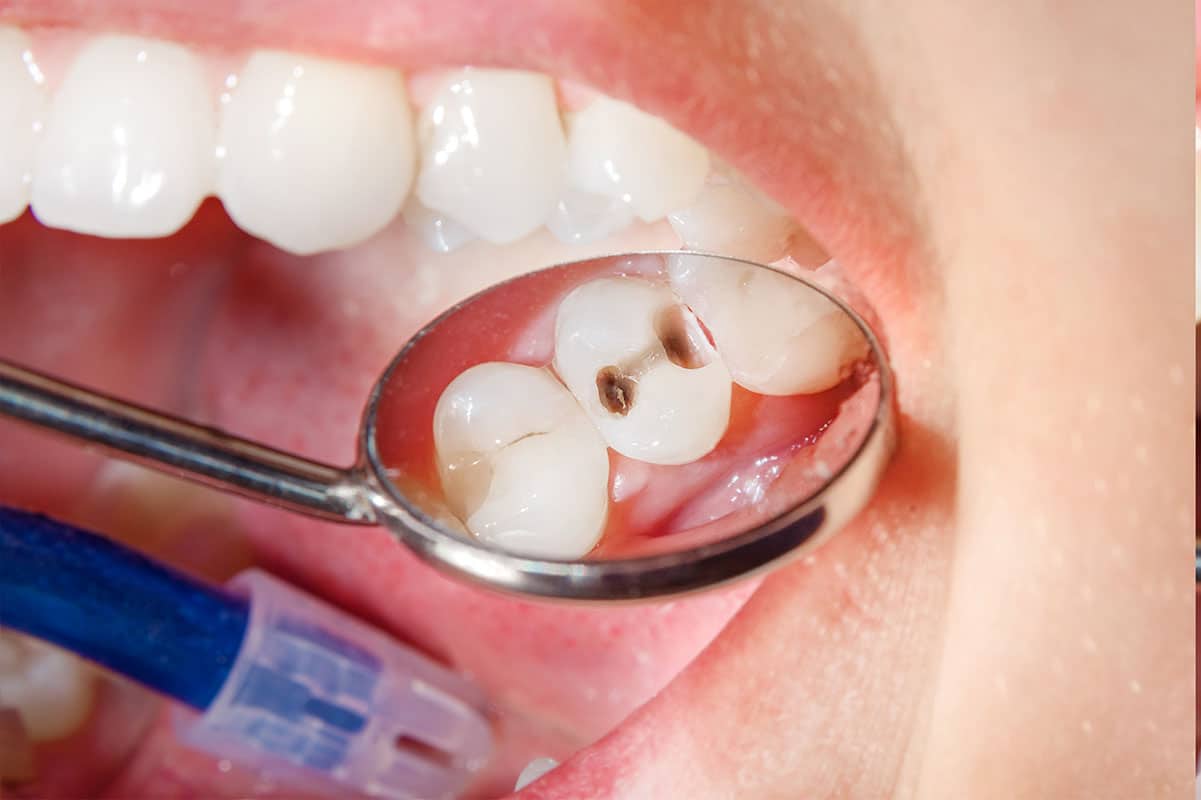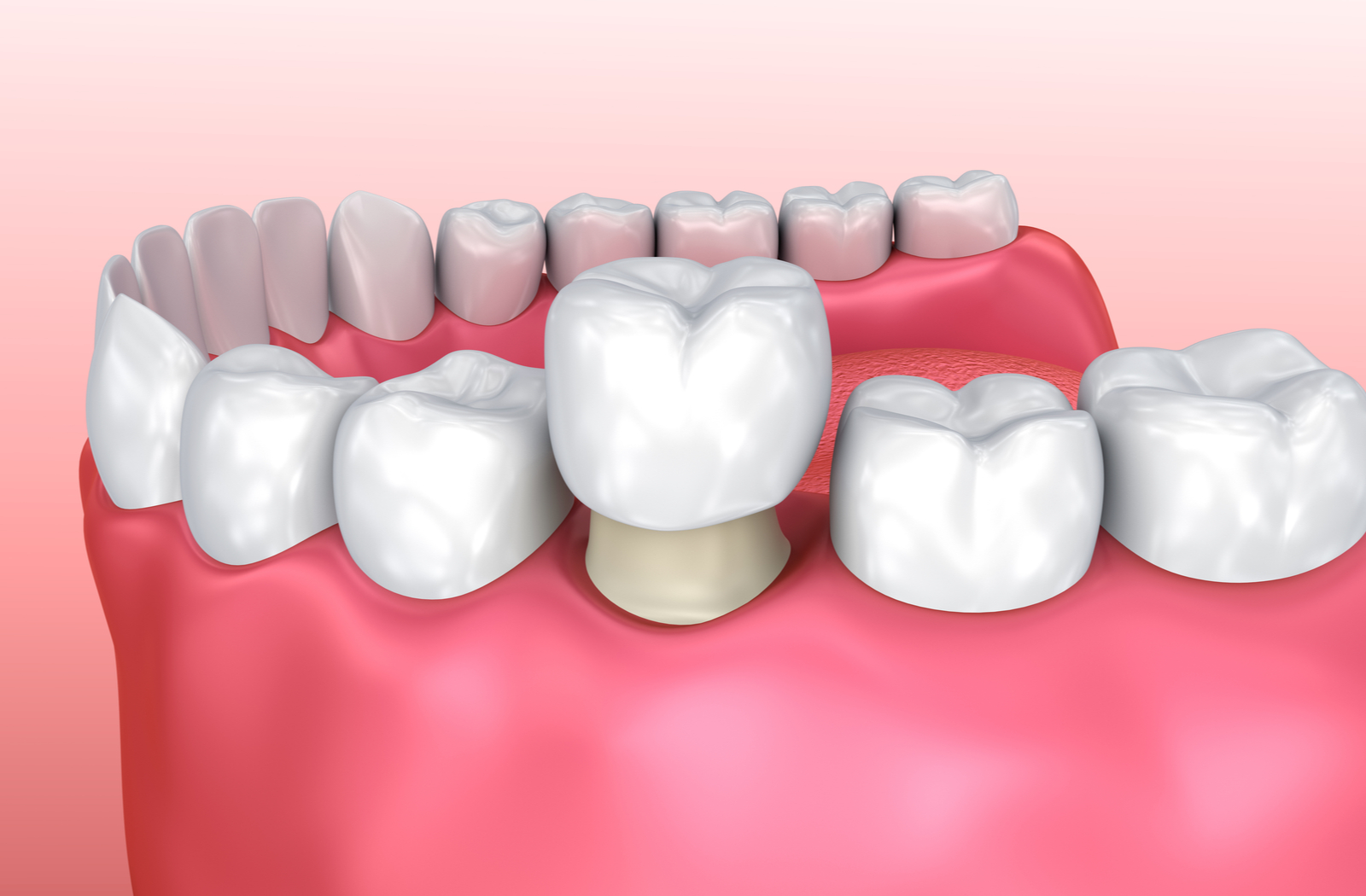Dental Crowns
Crowns are full coverage restorations that are used to cover a tooth that is likely to break, or is too broken down to be restored with a filling.
What Are Dental Crowns?
A Crown is used to entirely cover or “cap” a damaged tooth. Besides strengthening a damaged tooth a crown can be used to improve its appearance, shape, or alignment. They are most commonly done after root canal treatment, or when a large filling wears out. The larger the hole made by a cavity that has to be treated, the more likely a crown will be needed. Even after a filling is put in a large cavity, a tooth is more likely to break.
Keep in mind that the jaw muscles are the strongest in the human body. Teeth are subjected to tremendous pressures. Crowns ride over the weakened tooth, providing strength and protecting the tooth against breakage. A broken or cracked tooth is a far more serious matter and much more difficult to treat. Crowns prevent this, as well as making for a nice smile.
How does treatment work?
It takes two appointments to restore a tooth with a crown. In the first any decay is removed from the tooth and it is shaped to accept the crown. Then an impression is made of the tooth for use in fabricating a crown. Between the two visits the crown is made, usually of high-strength porcelain over gold alloy, all ceramic material, or gold. During this time a temporary crown is worn. In the second visit this temporary is removed. Then the permanent crown is adjusted as needed and then cemented in place.



Tooth Preparation
The first step in the process of getting a dental crown is to schedule a consultation with your dentist. Your dentist will perform a thorough exam and take X-rays to determine the health of the tooth that will receive the crown, and to ensure that there is enough healthy tooth structure to support the crown. If the tooth is severely decayed or damaged, your dentist may need to perform a root canal or other procedure to remove the infected or damaged tissue before placing the crown.
Temporary Crown Placement
During the first appointment, your dentist will prepare the tooth by removing any decayed or damaged tissue, and then reshaping the tooth to make room for the crown. Your dentist will also take impressions of your teeth, which will be used to create a model of your mouth, and to make the custom-fit crown. Once the tooth is prepared, a temporary crown may be placed over it to protect it while the permanent crown is being fabricated.
Crown Fabrication
At your second appointment, usually several weeks later, your dentist will bond the dental crown to your tooth, using a strong dental adhesive. Your dentist will carefully adjust the crown to ensure that it fits properly and that it does not interfere with your bite or your ability to chew and speak normally. Your dentist will also make any necessary adjustments to the crown to ensure that it looks and feels comfortable.
Crown Placement
Once the permanent crown is ready, the temporary crown is removed, and the permanent crown is cemented onto the affected tooth. The dentist will ensure that the crown fits properly and feels comfortable in your mouth.
Restore your confidence, stability, and oral health with our Dental Crowns solutions.
Video courtesy to Lassus Tandartsen.
Frequently Asked Questions
What are the benefits of dental crowns?
The most notable advantage of a dental crown is that it can prolong the life of a natural tooth. Specifically, crowns can:
- Treat worn, broken or decayed teeth.
- Protect teeth from erosion (wear and tear).
- Improve chewing function.
- Enhance your appearance.
- Last between five and 15 years with proper care.
What are the disadvantages of dental crowns?
There are also some disadvantages. For example, crowns:
- Require some removal of natural tooth enamel.
- May cause teeth sensitivity, especially in the first few weeks after placement.
- Can break or fracture over time.
- Can trap bacteria and lead to decay if they don’t fit properly.
- May cause an allergic reaction in some people. (This is rare.)
- May be expensive.
What are foods to avoid with a crown?
Whether you have a temporary or permanent crown, there are foods you should avoid, including:
- Ice cubes.
- Extremely hard nuts.
- Popcorn (with kernels).
- Super sticky foods like taffy and caramels.
These foods can damage or dislodge (pull off) your crown.


